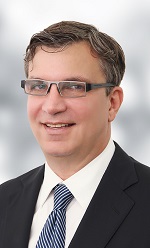China's BeiGene said it has completed financing of more than CNY600 million ($97 million) from initial angel and strategic investors as well as new investors Hillhouse Capital and CITIC PE, joined by an unnamed "blue chip U.S. public investment fund" specializing in life sciences.
New investors Fidelity Management & Research; T. Rowe Price; Rock Springs Capital; and Boxer Capital of Tavistock Life Sciences joined this round.
The oncology company is focused on developing targeted and immune-oncology therapeutics. The company has set its sights on three small molecules in Phase I, BGB-283, a second-generation BRAF and EGFR inhibitor, BGB-290, a PARP inhibitor and BGB3111, a highly selective BTK inhibitor.
The first two assets are outlicensed to Merck Serono, from which BeiGene has since obtained milestone payments of $5 million in May and $9 million in September.
In April, the company presented an abstract entitled "BGB-283, a novel RAF kinase and EGFR dual inhibitor, displays potent antitumor activity in B-RAF mutated colorectal cancers," which was selected for oral presentation at the AACR Minisymposium "Exploiting the MAPK Pathway in Cancer."
 |
| BeiGene CEO John Oyler |
"We currently have three oncology candidates in Phase 1 clinical testing with global best-in-class potential, a testament to our unique translational research platform that allows us to consistently deliver targeted therapeutics with the potential to address significant unmet needs for patients in a variety of cancer indications," said John Oyler, CEO of BeiGene, in a statement.
The company is also pursuing additional preclinical programs, including a highly potent and potentially differentiated PD-1 monoclonal antibody candidate.
In a March interview with FiercePharmaAsia, Oyler mentioned looking at a public listing on the Nasdaq, possibly this year, but was not declarative on any schedule.
"Yes we've looked at Nasdaq and public funding and hope to go that route--no time frame. But we know that would be unique for now--because there are many small companies in biotech here that cannot get capital."
More importantly for Oyler are the prospects for any oncology drugs produced locally to jibe with the way public reimbursement is evolving in China, making them accessible and affordable.
"According to McKinsey, China's total pharma market is $160 billion, and in 10 years may be $320 billion--that's 14% a year--not a small market. But that's not all--the aim is to go global from here. That's why our team is here and working like crazy--for the discovery and innovation because there are major breakthroughs in cancer that will have huge impact and with this disruption, BeiGene, a little-known company in China, can excel and become a major global player."
He then cited the potential scale.
"Two provinces--Jiangsu and Zhejiang--are moving to partially reimburse some of these innovative drugs because they are working. These provinces alone are equivalent to 35% of the U.S. population," he said.
"Cancer is major focus because as an area of public policy there is a lot to be done--education, access to new medicines, how hospitals and doctors work to diagnose. This takes time, but the need and the benefit is there."
- here's the release from BeiGene (PDF)